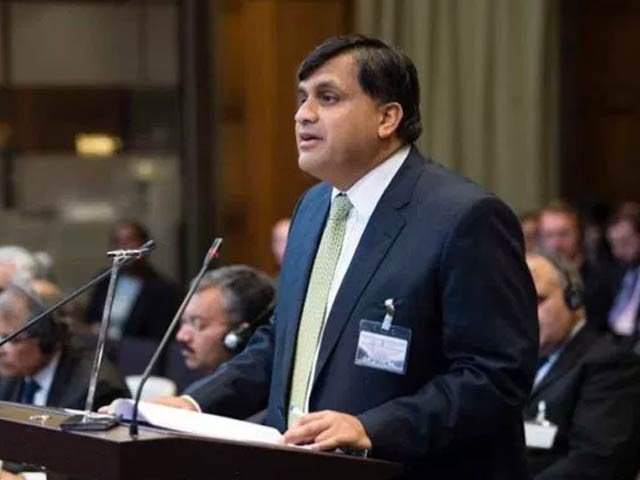
The United Nation's office of the High Commission for Human Rights (OHCHR) issued its first-ever report on the situation in Kashmir June 14. The report highlights the protests after the killing of Burhan Wani in 2016 and the brutal use of pellet guns against protesters among the human rights violations in Indian-held Kashmir.
Spokesperson Mohammad Faisal opened the weekly briefing by commemorating the second death anniversary of Wani.
Faisal went on to add, "his struggle symbolised that of every Kashmiri, who is fighting the inhumane and treacherous Indian rule in Indian-occupied Kashmir (IoK) every day for their just right to self-determination, which is enshrined in the relevant UNSC Resolutions and calls for a UN-mandated plebiscite in Jammu & Kashmir."
The publication of this report verifies Pakistan's stance as the country has frequently called on the international community to pay attention to the deteriorating human rights situation in the occupied valley. However, the report was rejected by India and the country's representative to the UN earlier this week, said the document “was not even found fit to be considered by the membership of the forum where it was submitted".
India rejects UN report on IOK, says it ‘not even fit for consideration by rights group’
Faisal said, "The OHCHR Report on Kashmir is a reflection of Pakistan’s repeated calls to the International Community to take stock of India’s brutal use of pellet guns, indiscriminate firing, use of human shield and promulgation of draconian AFPSA and SPA laws that are making lives of Kashmiris in IoK a living hell."
The FO spokesperson added that atrocities have continued with impunity in IOK and he named eight Kashmiris who had died last week.
"The UN Report is a vindication of the brutalities and atrocities India is committing in Indian occupied Jammu & Kashmir since decades. We call upon the international community to take cognizance of the human rights situation in IoK as well as the OHCHR Report, and immediately call India to account to stop the bloodshed and give the Kashmiris their just right to self-determination through a UN-mandated plebiscite."
A UN-backed chance to address the Kashmiri plight
Faisal repeatedly condemned the brutal human rights violations of Indian occupation forces. He added that aged female resistance leader Syeda Aasiya Andrabi, Nahida Nasreen and Fehmeeda Sofi were moved to Tihar jail in New Delhi and deemed it a grave matter because of the inhumane conditions prevalent in the prison.
Faisal also mentioned the recent Pakistani satellites launched with cooperation from China which would help with land mapping, urban and rural planning, water resource management and other socio-economic development aims. "The successful implementation of PRSS-1 and PakTES-1A projects has further strengthened the space cooperation between Pakistan and China for future collaborations."
He closed the press conference by mentioning that employees of the Ministry of Foreign Affairs will be contributing to the fund for the construction of Diamer Basha and Mohmand dam projects.


1716998435-0/Ryan-Reynolds-Hugh-Jackman-(3)1716998435-0-165x106.webp)







1730806490-0/New-Project-(2)1730806490-0-270x192.webp)




1730706072-0/Copy-of-Untitled-(2)1730706072-0-270x192.webp)
COMMENTS
Comments are moderated and generally will be posted if they are on-topic and not abusive.
For more information, please see our Comments FAQ